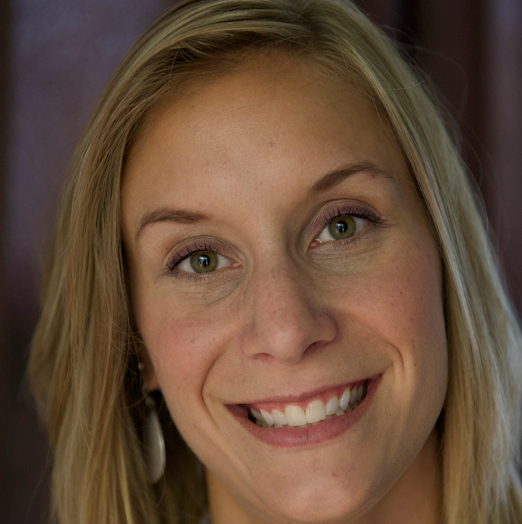|
This week, the ladies of Smith Shapourian Mignano LLP are happy to feature a guest blog by our friend and patent agent, Ashley Sloat, Ph.D., Director of Operations and Sr. Patent Strategy Specialist at Aurora Consulting.
Aurora Consulting is a full-service patent strategy firm with locations in California’s Silicon Valley and in Traverse City, MI. It offers solutions in the areas of portfolio management, patent portfolio growth, and strategic patent prosecution. Ashley specializes in outlining and executing patent strategy for small to mid-sized startups. She gains an in-depth understanding of the technology and company vision and develops a strategy that achieves quality protection for the technology and meets budget goals. We met Ashley through a friend, and are happy to feature her here in this informative blog post for our readers. *** The Three Ws of Patent Strategy By: Ashley Sloat of Aurora Consulting. A tailored patent strategy is imperative for the success and growth of most startups, but… What? Why? and When? These are the three questions many startups face when first considering patent protection. Let’s first consider What. “What is patentable?” Generally speaking, any new, non-obvious, and useful system, device, or method is protectable by a patent in the U.S. This may sound broad, but it is so by design. That said, recent U.S. court decisions on the patentability of software and diagnostic methods have created some difficulty in protecting these innovations, but for the right innovation, patent protection remains possible. Next comes Why. “Why should we apply for a patent?” The reasons can be numerous, but for startups, a patent can provide three main advantages: assisting fundraising efforts, deterring copycats, and delineating partnership contributions. Assist fundraising efforts. A patent provides the patent owner the right to exclude competitors from making, using, or selling the patented product. Having this right can stimulate investment or acquisition. Many investors will not invest in a company of interest unless the company has an issued patent or at least a pending patent application. A pending patent application signals to investors that you are taking steps to protect your market share. For potential acquirers, a pending patent application or issued patent signifies that, if the acquirer buys the company, the acquirer has the potential for a monopoly on the market for up to 20 years for the protected product. Deter copying. If a competitor observes that a product or features of a product are protected by a patent, the competitor may be less likely to copy that product or those features. Further, if a competitor does copy patent-protected elements of a product, an infringement lawsuit can be brought against the competitor to seek monetary damages and stop the copying. Delineate partnership contributions. If an invention is shared with a potential partner while collaborating together before filing a patent application, the potential partner may mistakenly claim rights to the invention, thinking that he or she independently derived it. Filing a patent application before talking to any potential partners can clearly delineate which ideas preceded the collaboration. Finally, but perhaps most pressing, comes When. “When should we apply for a patent?” To protect your rights in the U.S. and internationally, ideally a patent application should be filed before any public disclosure (e.g., publication, seminar, trade show, etc.). However, if you have already publicly disclosed, the U.S. has a one-year grace period, which allows an inventor or applicant to file a patent application up to one year after the initial public disclosure. For international filings, if the product has already been publicly disclosed, any new, non-obvious improvements in the product, that have not been previously disclosed publicly, can still be protected by a patent. Further, it is important to note that patent applications can be filed on ideas that have not been actually reduced to practice so long as the idea can be described in such detail in the patent application that others skilled in the relevant technical field could make and use the invention. If you have more detailed inquiries about the Three Ws or any other aspects of your patent strategy, Aurora Consulting would love to hear from you! *** This blog does not constitute solicitation or provision of legal advice, and does not establish an attorney-client relationship. This blog should not be used as a substitute for obtaining legal advice from an attorney licensed or authorized to practice in your jurisdiction. You should always consult a suitably qualified attorney regarding any specific legal problem or matter in a timely manner, as statutes of limitations may bar your claim.
Edwin Castro
2/26/2023 08:10:39 pm
"As much as I am shocked and ecstatic to have won the Powerball drawing, the real winner is the California public school system". No one would convince me that winning this lottery Powerball or mega millions is not something that changes the way and view of life's prospects. My name is Edwin Castro and I am from California, United States. I won the Powerball Lottery on Nov 7 2022 and I am coming to say a wonderful and big thanks to Dr Anokokudo for helping me with the winning numbers for the Powerball Lottery. I was really overwhelmed the day I contacted Dr Anokokudo to help me win the California Powerball Lottery when he instructed me what to do. The time came to play the lottery and I did and believe me, it was exhilarating. I won the Powerball $2.04 Billion and collected the lump sum of $997.6 Million and the November Powerball drawing raised a record $156.3 million for the California public school system. I am indeed thankful to Dr Anokokudo and others who helped me with his contact. Anyone who reads my comments should also try to contact Dr Anokokudo at [email protected] Comments are closed.
|
Archives
February 2023
Categories
All
|
© 2023 SSM Law PC. All Rights Reserved.
Privacy Policy
Terms of Use
Accessibility Statement
Attorney Advertising
Client Reviews & Testimonials

 RSS Feed
RSS Feed